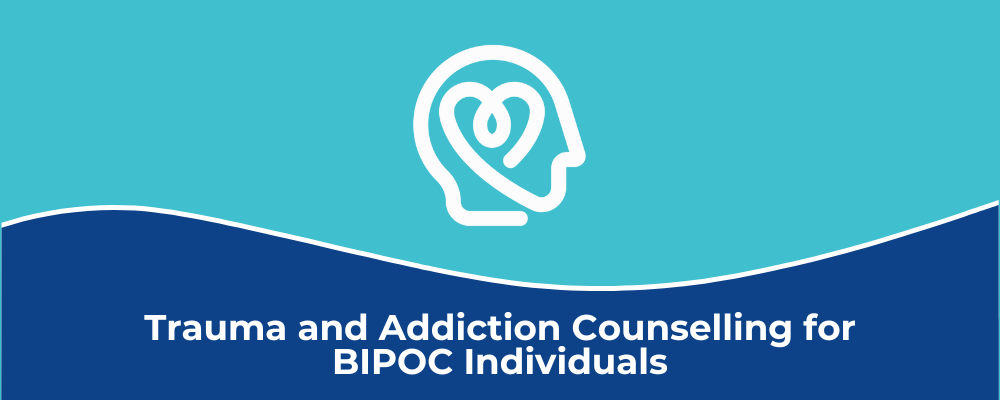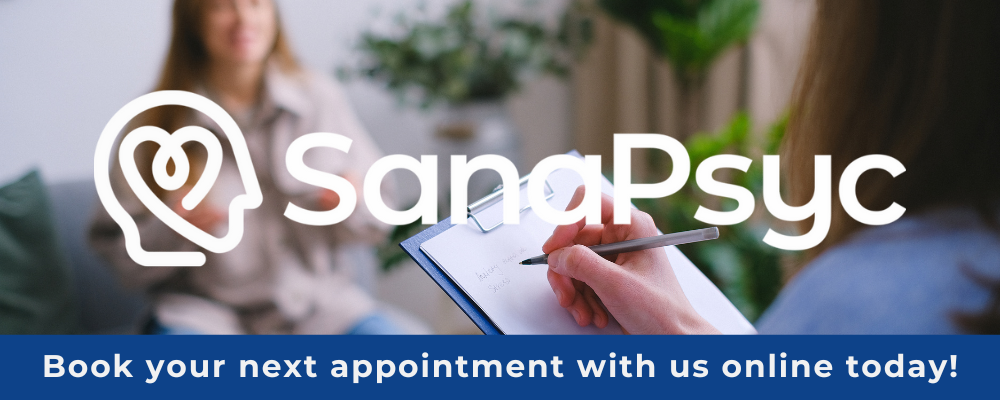
Black, Indigenous and People of Colour (BIPOC) therapists and people accessing trauma counselling, addiction counselling, and mental health counselling of any kind are underrepresented in therapy offices across Canada. Estimates are that only up to 38% of BIPOC individuals who are struggling with their mental health access professional support compared to 50% of White individuals.
There are many reasons for this, including a lack of BIPOC therapists providing trauma and addiction counselling Calgary (to learn more about why this may be the case, click here). There are also historically rooted barriers in cultures and societies around mental health and addiction counselling (including in our Canadian culture which is rooted in oppression and mistreatment of BIPOC communities).
Sana Psychological is honoured to have BIPOC therapist, Jasleen Bhatoa, supporting clients and providing trauma counselling Calgary and addiction counselling Calgary. Jasleen and I have had some interesting conversations about her experience as a BIPOC individual and therapist and how mental health was viewed and discussed in her culture of origin. These conversations led to the creation of this blog! Below are Jasleen’s perspective on some of the stigma and barriers that BIPOC individuals encounter when it comes to trauma counselling Calgary and addiction counselling Calgary, as well as the benefits of mental health counselling for BIPOC individuals, as well as a composite lived experience story.
Barriers for BIPOC Individuals That Prevents Engagement With Trauma Counselling Calgary
For many BIPOC individuals, there are likely multiple barriers to openness, consideration, and engagement with trauma counselling and other mental health care. Some such barriers include:
- Coming from backgrounds that view trauma counselling, addiction counselling and mental health care as a sign of moral or spiritual weakness
- The stressors and/or trauma that you are experiencing are viewed as a “norm” that all human beings experience and that just need to be gone through
- Seeking trauma counselling Calgary may be viewed as having a lack of resilience and/or independence
- The fear of being judged, especially by a perceived authority figure
- Fear of being mistreated and misunderstood, especially by a non-BIPOC therapist
- Not feeling comfortable with Colonial/Western ideas of both medicine, mental health, trauma counselling and addiction counselling
- Fear of being labelled as ‘mentally ill’ and the stigma, judgment, and despair that can come with that
- Language barriers and not having providers available that you can converse with in your first language
- Discomfort about the therapists’ gender
- The perception of therapy as fostering individualism and going against one’s own values, norms, and culture
- Financial barriers
- Accessibility barriers-not having appropriately trained and informed therapists nearby
- A lack of in person or virtual therapy options
- Concerns about what trauma counselling Calgary will entail and what this will mean to future life and behaviour
As you can see, there are a number of barriers for BIPOC individuals openly engaging with trauma counselling Calgary. This is not an extensive list, nor does it mean that trauma counselling is even necessary for everyone, but as therapists these are issues that are important for us to consider.
Barriers for BIPOC Individuals That Prevents Engagement With Addiction Counselling Calgary
As with trauma counselling Calgary, there may be some additional barriers preventing BIPOC individuals from considering and accessing addiction counselling Calgary. Some of these barriers include:
- One’s perception of addiction and what this means. How alcohol use, drug use, gambling, sexual behaviour, and food are viewed varies by culture and this influences how addiction is viewed and discussed in families and culture
- There continues to be a great deal of secrecy about addictive behaviours in societies which contributes to denial and misunderstanding within the person. For instance, while alcohol consumption is on the rise in countries like India, with an estimated 57 million people being in need of treatment and additional support, with a lack of treatment providers available there are a lot of people left without proper care
- Shame associated with certain behaviours based on cultural and/or religious norms (especially things like drug use and sexual acting out)
- Lack of providers offering addiction counselling Calgary from one’s same background and culture
- Language barriers
- Financial barriers
- Lack of information and knowledge about addictive processes and how they impact health (Jasleen has found that educating people on the impact of alcohol and drugs, what is happening in the brain when someone is struggling with addiction, and providing factual information in addiction counselling Calgary sessions has been well-received and appreciated by her BIPOC clients
Benefits of Trauma Counselling and Addiction Counselling Calgary for BIPOC Individuals
For those who are having a difficult time in life and with their mental health, counselling can offer a number of benefits, including:
- Empowerment and agency
- Validating one’s experiences
- Having emotional support for what they are experiencing and/or have experienced in the past
- Healing from historical and intergenerational trauma though trauma counselling Calgary
- Connecting with community
- Feeling an increase in self-awareness
- Building a stronger relationship with oneself and others
- Reducing guilt and shame
My personal perception of trauma, addiction, and mental health when I was growing up was limited due to the lack of mental health awareness in my community and country. There were little to no conversations about mental health issues in the society, including household and school, especially up until the age of 12. Mental health issues were linked to: Losing control of one’s thoughts, losing conscious awareness, and even linked to supernatural concepts. In adulthood, I gained more awareness about mental health issues through education and by intentionally researching concepts like depression and anxiety which were listed as normal responses to different lived experiences life stressors. This was eye-opening and challenged some of the messaging I received in earlier years.
In addition to this, an increase in globalization and social media helped bring more awareness of mental health concerns, normalizing them, and viewing them as just as important as other medical illnesses. This opened me up to become more interested in trauma counselling, addiction counselling, and mental health support overall. It was humbling to find out that mental health concerns were as prevalent in other societies as they were/are in the western world. It has been humbling also to have clients reach out from my own culture, as well as other BIPOC cultures and communities, looking for support from someone who can relate to their experiences and how they were raised.
Why Trauma Counselling Calgary, Addiction Counselling Calgary and Mental Health Counselling Needs To Be More Accessible to BIPOC Individuals
It is incredibly important that trauma counselling, addiction counselling, and mental health services be more accessible to BIPOC communities throughout Canada as those who are open and interested in care deserve quality care that is respectful of their culture, beliefs, and background. In providing trauma counselling Calgary to BIPOC individuals, it helps reduce barriers like cultural stigma, linguistic differences (terms like anxiety or depression do not always translate well into other languages), lack of representation in mental health professionals, and can also help with reducing economical discrimination, since poverty and unemployment intersect with limited access to health insurance and to the means that make mental healthcare accessible.
An Example of BIPOC Trauma Counselling Calgary
J.S. came to counselling with Jasleen as they felt safe and comfortable meeting with a BIPOC therapist as a BIPOC individual themselves. While they were from a different cultural background, they said it was important to them that they had someone who could understand some of the family, values, and cultural challenges they were experiencing that were contributing to some of their mental health experiences.
J.S. came due to grief, paranoia, anxiety, and had also experienced trauma that they were looking to address in trauma counselling Calgary. They were struggling with increased anxiety and worry about something bad happening to them. This was causing a lack of trust in others and in their ability to care for themself. J.S. engaged in multiple sessions of counselling, saying that they felt heard, listened to, supported and no longer alone in their life. The client’s symptoms stabilized in this context as they felt relieved to know what they were experiencing was part of the human experience and that they were not “crazy.” They were open to learning some emotional regulation tools and skills along the way that further helped them when feelings of anxiety came up.
Trauma Counselling Calgary & Addiction Counselling Calgary
Thank you to Jasleen for her openness, thoughtfulness and vulnerability to bring awareness and attention to this area of mental health. Jasleen offers trauma counselling, addiction counselling, anxiety counselling, and support for those with other mental health symptoms in Calgary at Sana Psychological for in person sessions and throughout Alberta, Nova Scotia, New Brunswick and Yukon for virtual sessions. Jasleen is happy to offer support in English, Punjabi, Urdu and Hindi to increase accessibility. She also offers some sliding scale/reduced fee counselling spots to increase accessibility too. Appointments can be booked online anytime.
Additional Resources for BIPOC Individuals in Alberta:
BIPOC Healing & Wellness Centre


